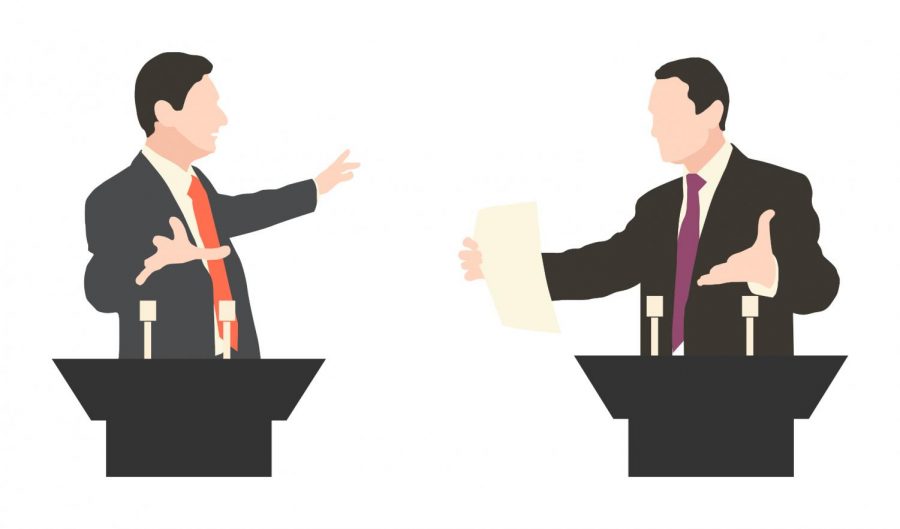Comparative World Issue Class Debates Nuclear Weapons
Students from Mr. Doubleday’s Contemporary World Issue class recently had a lively, heated debate over the controversy of nuclear weapons.
On April 3, The Willistonian observed Doubleday’s class as students were divided into three groups with three different opinions about U.S policies of nuclear weapons.
Contemporary World Issue is an elective class offered in third trimester of every year, led by Mr. Doubleday. The class examines world issues such as climate change, terrorism, human rights, international trade, and globalization. Students have the opportunity to discover different perspectives of many countries, how the media usually covers the problems, and the potential solution for these issues.
After a week of preparation, the class gathered, fully prepared, for the final debate. The students in the class include: seniors Dylan Agbarha, Haley Beecher, Noah Clack, Duncan LeXander, Brandon McGill, Andikan Ntia-James, Jack Rockett, Risa Tapanes, Mark Woort-Menker, and Cameron Ziomek, as well as juniors Artur Lysyuk, Hunter Sarro, and James White.
During the first round, each team introduced the policy they were charged with defending. Round two provided the opportunity for each group to represent its strongest argument for their policy, and why it is the best option. Round three allowed each team to criticize other teams’ policies.
The first team’s suggestion for U.S policy was to eliminate all nuclear weapons. Their strongest argument was that if the United States agrees to put away nuclear weapon, other countries will follow the movement and the world will be a safer place for everyone.
The second team’s policy was to rely on the use of treaties and come up with rules for all nations to follow, which will help control the use of nuclear weapons.
“Working together can help people come together with a better option for all countries,” said a team member.
The last team defended the option of keeping nuclear weapon as a means of protection for the United States.
“Because we are a big nation with many threats on our back such as North Korea and Israel, keeping nuclear weapon would serve as a reminder for other countries not to mess around with the U.S,” a team member said.
After round two, the competing teams entered round three prepared to defend their options.
The first team was asked if the U.S. were to take away its their nuclear weapon, would it make other countries like Russia feel stronger. They responded quickly.
“The U.S. is being considered as a powerhouse,” said a team member. “We have such a strong economy and a strong military base. If we take away nuclear weapons, it would help to draw the attention away from us and make the United States a stronger nation.”
The second team’s answer to the question, “What if other nations couldn’t come to the same agreement,” was: “Compromise sometimes might fail.” However, the team added, “it’s important that negotiation should come first when dealing with world issues, not going to war with others.”
The last team chose to address the first team’s option of removing all nuclear weapons.
“Even if the U.S. put away nuclear weapons, [it] doesn’t mean that other countries would agree to do the same thing,” said a member from team three. “If we put a law on nuclear weapons, it would be easier for us to control [them] and also use [them] as a protection against terrorists.”
The first team’s response was: “If we were being attacked by terrorism, those lives would have been lost.”
At the end of the debate, Doubleday praised the teams for their diligence on such a complicated and divisive issue.
“We can all realize that this is a complicated issue and we can’t come to a solution easily,” said Doubleday, “This is a way for us to realize that every policy has its weakness and strengths that not many people can realize that. People need to see the drawbacks no matter how good the policy might be.”
Junior Artur Lysyuk told The Willistonian:”It helped me to look at the problem from a different perspective. The preparation for the debate showed that all positions in the debate have not only advantages but also the downsides, which you could critique or defend during the debate.”
Nhi is a senior at Williston. She is from Hanoi, Vietnam. In her free time, she enjoys taking pictures and hanging out with friends. Next year she will...











